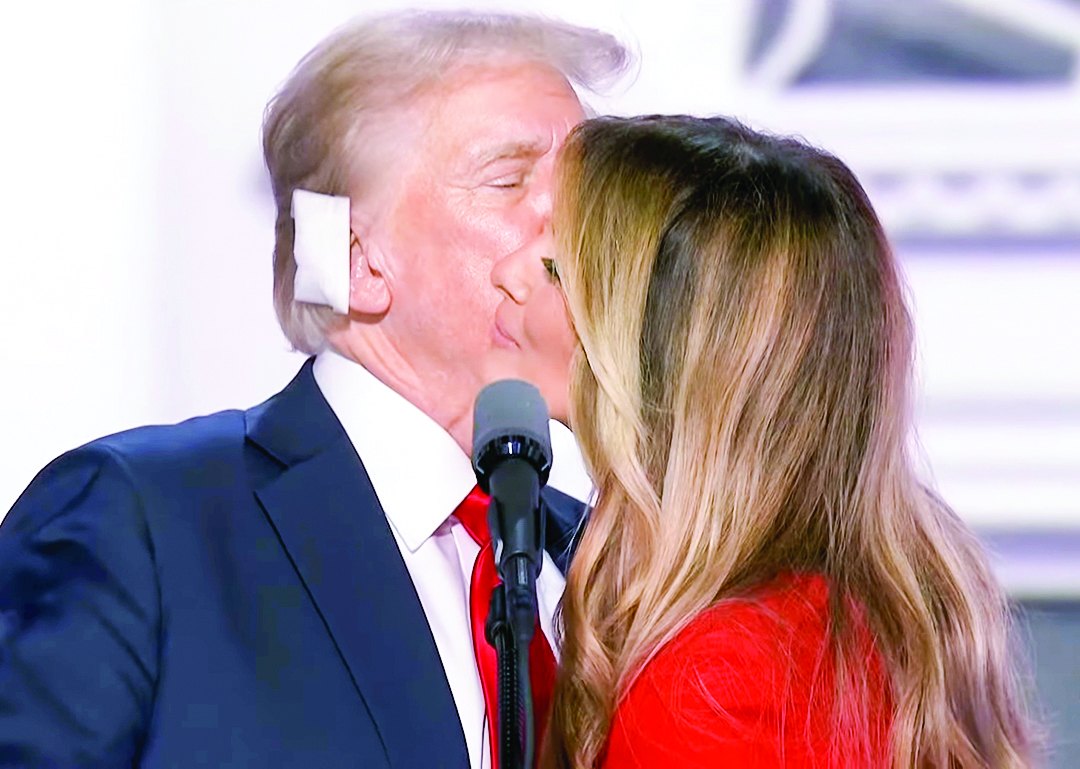The emerging trend indicates that there is going to be an extremely close race between the two candidates in battleground states.
Though the United States presidential election campaign by both Trump and Harris has reached the peak of allegations and counter-allegations and is full of personal slander, the voters seem to be undecided about their choice as to who could help the country regain its supremacy and assume global leadership. The election scheduled for 5 November has received the world’s attention and will certainly have global implications including a significant impact on the world economy in addition to major consequences for international issues ranging from the climate crisis to the issue of supply chains.
In recent years, the United States has also experienced political and societal polarization which will have a bearing on the presidential election. The societal polarization is being witnessed in terms of having ideological and cultural divisions within and across communities, leading to an impact on social stability. These evolving changes will certainly have a greater impact on voter’s choices. When voters cast their ballots on their prejudices, they will in fact vote for state electors and that in turn will be pledged to their chosen candidate.
It must be emphasised here that the election of the United States President is not decided through a direct popular vote. The presidential election uses an indirect method through the Electoral College. Under this system, each of the 50 US States is allocated a number of electoral votes on their representation in the US Congress. California has the highest of 54 electoral votes. The total number of electoral votes is 538. A candidate must receive a majority of electoral votes (270 or more) to win the presidency. Moreover, the election result takes its own course because each state has different rules on how and when to count the votes.
The fight for the White House in this election seems to be on a knife’s edge. There is no denying the fact that this presidential election is going to be the tightest contest. As the voting date comes closer, the Democrats have attempted to mobilise domestic public opinion in their favour by putting focus on protecting reproductive rights and also showcasing Biden’s landmark Inflation Reduction Act, in addition to slashing the price of insulin. On the other hand, Republicans have focused on inflation, public safety and immigration. “America First” remains an important part of Republican sloganeering.
The emerging trend indicates that there is going to be an extremely close race between the two candidates in battleground states. Donald Trump is on pace with his 2020 performance in battleground districts in “blue states”. Kamala Harris seems to be on track to match Joe Biden’s performance in key districts of the Midwest.
Trump so far has not shown much inclination in exploiting President Biden’s weaknesses and get an edge in Democratic leaning Virginia and Minnesota. Ultimately, Trump had to bank
In a real sense, there is going to be a “Blue Wall” battle. This perhaps will decide who is going to occupy the seat of power in White House. Winning Michigan, Pennsylvania, Wisconsin and Nebraska is a must for Harris. Whether Trump will have a clean sweep in Arizona, Georgia, Nevada and North Carolina remains a part of the discourse despite a strong foothold. But neither of them can afford to adopt a singular electoral strategy and both of them have been working hard to win the states across the board. Having former Republican Congresswoman Liz Cheney in Harris’ arms has proved detrimental to Trump. Knowing Trump’s manoeuvrings and his behavioral patterns, it will have to be seen how he moves ahead in his mission to change the course of the election in his favour.
After assessing all these developments, it is most likely that Trump might get back to the White House despite all the intricacies he has developed all these years. The Republicans in the United States have always focused largely on domestic issues. Their engagement with the world remains limited. Their belief in an alliance system, owning the responsibility to lead the global affairs all remain a part of the debate. The “America First” strategy in a technical sense will take the United States towards isolationism.
For India, whether it is Trump or Harris, there will be a continuity in their bilateral approaches at every level. India has reflected its maturity in diplomatic maneuvering where it can find ways and mechanism to further its national interests irrespective of Trump or Harris. It is, however, generally believed among the members of the academic and strategic community that Trump would prove better for India in terms of strengthening bilateral ties. The culmination of intangibles to tangibles will remain a part of the discourse in Indo-US strategic partnership and the Initiatives on Critical and Emerging Technologies (ICET).
* Dr Arvind Kumar is Professor of United States Studies at the School of International Studies, Jawaharlal Nehru University, New Delhi.

